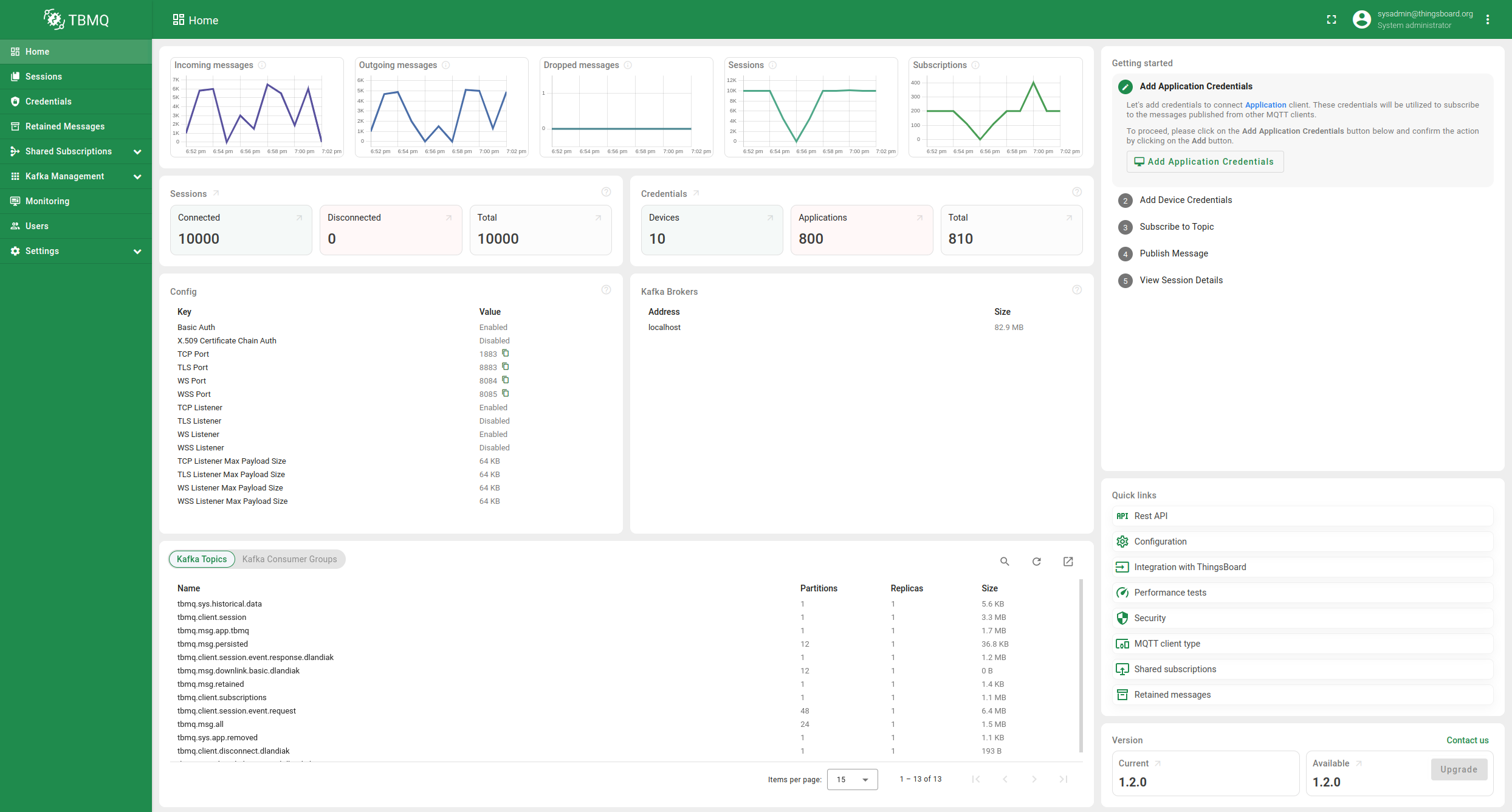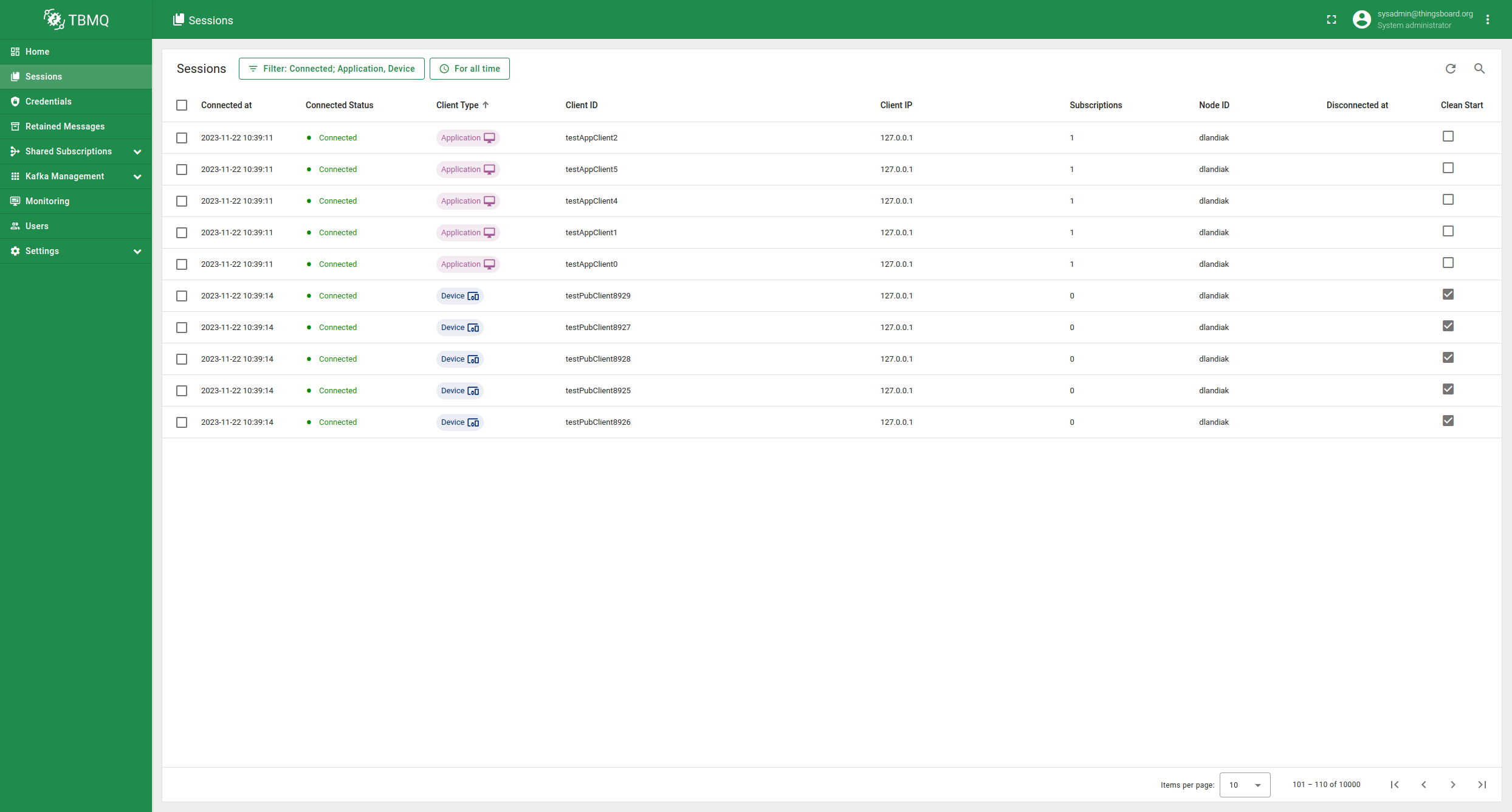TBMQ represents an open-source MQTT message broker with the capacity to handle 4M+ concurrent client connections, supporting a minimum of 3M messages per second throughput per single cluster node with low latency delivery. In the cluster mode, its capabilities are further enhanced, enabling it to support more than 100M concurrently connected clients.
At ThingsBoard, we've gained a lot of experience in building scalable IoT applications, which has helped us identify two main scenarios for MQTT-based solutions. In the first scenario, numerous devices generate a large volume of messages that are consumed by specific applications, resulting in a fan-in pattern. Normally, a few applications are set up to handle these lots of incoming data. They must be persistent clients with a Quality of Service (QoS) level set to 1 or 2, capable of retaining all the data even when they're temporarily offline due to restarts or upgrades. This ensures applications don't miss any single message. On the other hand, the second scenario involves numerous devices subscribing to specific updates or notifications that must be delivered. This leads to a few incoming requests that cause a high volume of outgoing data. This case is known as a fan-out pattern. Acknowledging these scenarios, we intentionally designed TBMQ to be exceptionally well-suited for both.
Our design principles focused on ensuring the broker’s fault tolerance and high availability. Thus, we deliberately avoided reliance on master or coordinated processes. We ensured the same functionality across all nodes within the cluster.
We prioritized supporting distributed processing, allowing for effortless horizontal scalability as our operations grow. We wanted our broker to support high-throughput and guarantee low-latency delivery of messages to clients. Ensuring data durability and replication was crucial in our design. We aimed for a system where once the broker acknowledges receiving a message, it remains safe and won’t be lost.
TBMQ provides compatibility with both MQTT v3.x and v5.0 protocols. Last but not least, it had been running in production for more than a year before being open-sourced.
TBMQ documentation is hosted on thingsboard.io.
Connect clients and Publish your IoT data in minutes by following this guide.
Review different TBMQ installation options by following this link.
This project is released under Apache 2.0 License.
- User Properties
- Reason Codes for MQTT packets
- Session Clean Start
- New Data Type: UTF-8 String pairs
- Bi-directional DISCONNECT packets
- Using passwords without usernames
- Session expiry feature
- Message expiry feature
- Shared subscriptions
- Subscription options
- Topic aliases
- Maximum Packet Size
- Will delay
- Server Keep-Alive
- Assigned ClientID
- Server reference
- The payload format and content types
- Request / Response & Correlation Data
- Flow Control
- AUTH packet & Enhanced Authentication
- Subscription Identifiers

